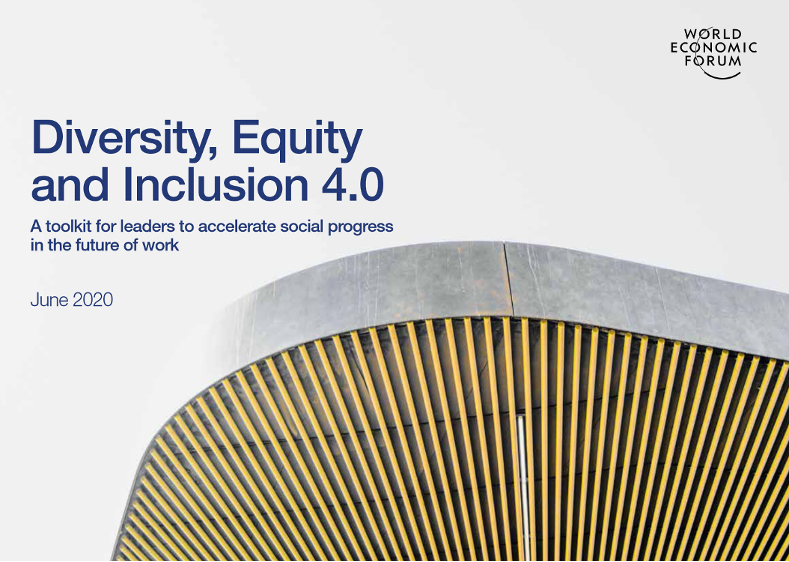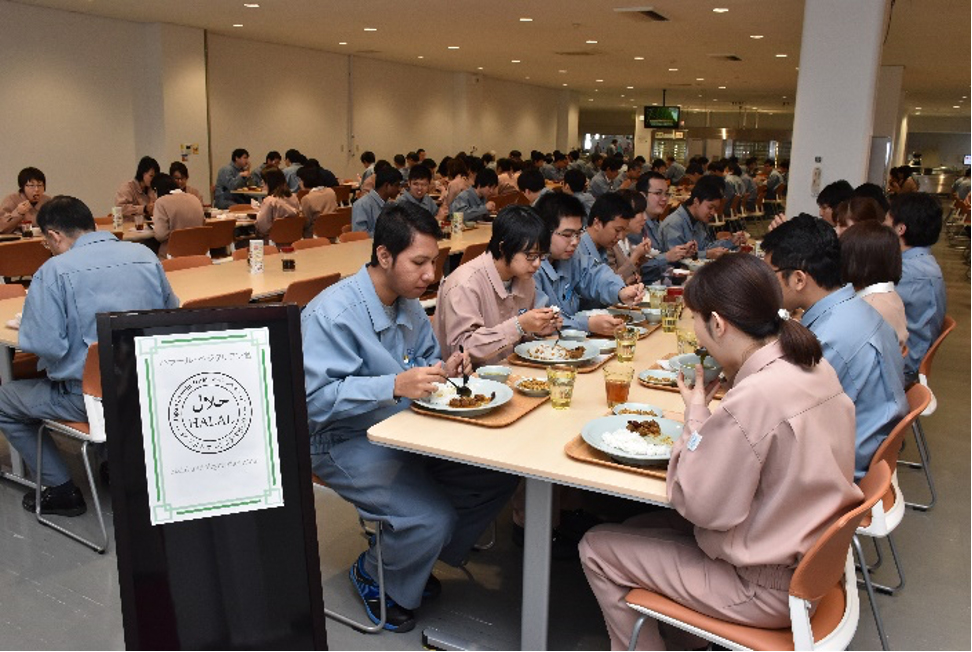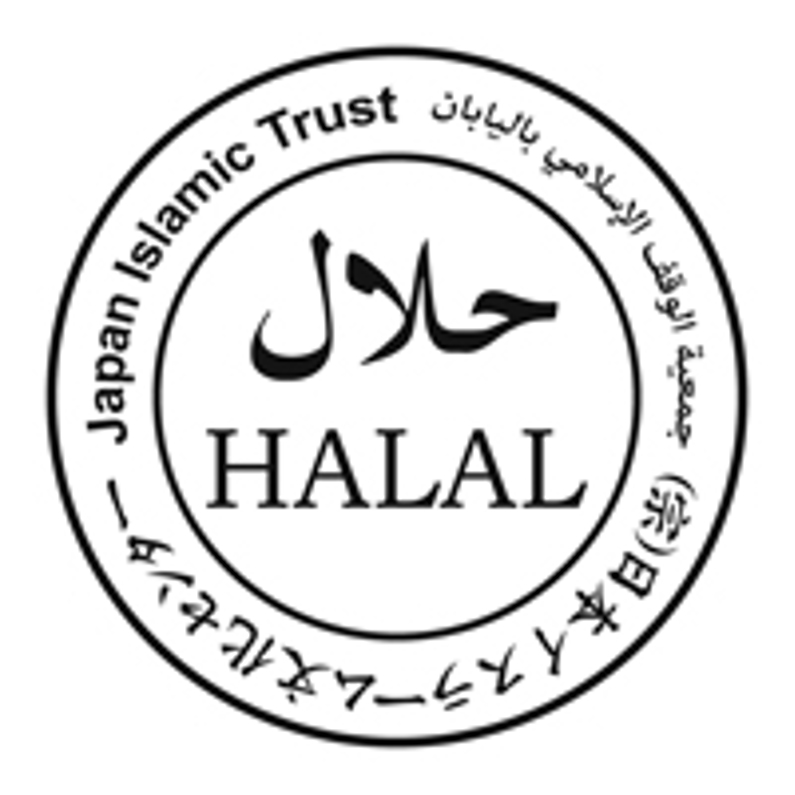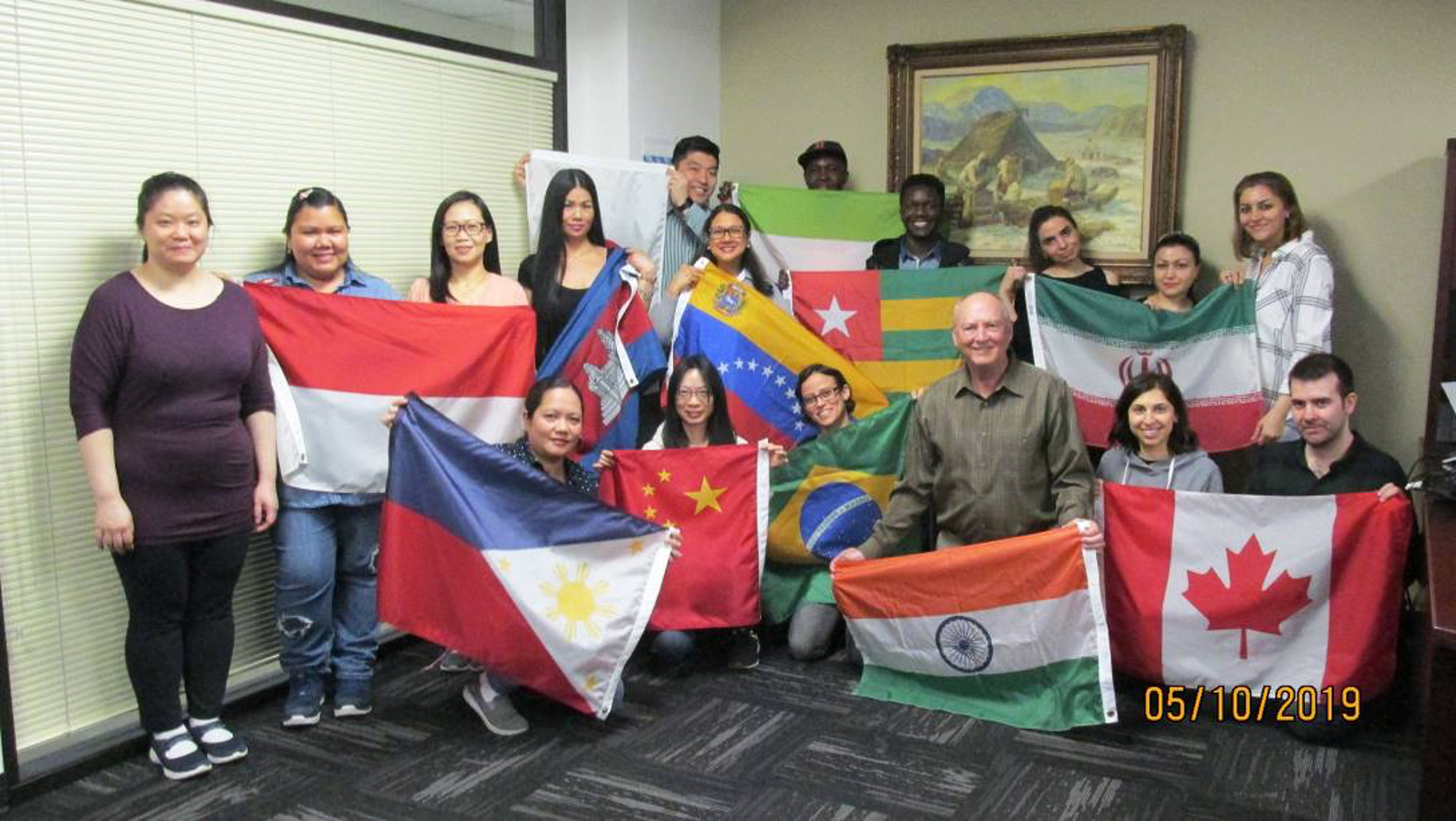Growing Focus on Diversity, Equity, and Inclusion Around the World
In recent years, there has been a rapid growth in attention paid to diversity, equity, and inclusion, which includes activities aimed at realizing an inclusive society that rejects discrimination based on individual characteristics such as race, gender, religion, faith, disability, age, place of birth, gender self-identification, and sexual orientation. For example, the Academy of Motion Picture Arts and Sciences, which hosts the Academy Awards, has announced standards for diversity and inclusion. Starting in 2024, the Academy will mandate in the Best Picture category, actors, production and marketing staff, and other staff must include certain percentages of people of color, women, people with disabilities, and sexual minorities from the LGBTQ spectrum.*1
Research has shown that broadening employment opportunities for people from various backgrounds through diversity and inclusion not only leads to a fairer and more equitable society, but also contributes to the success of hiring corporations. In 2020, the American consulting firm, McKinsey & Company, released a diversity report entitled "Diversity Wins: How Inclusion Matters". The report found that the "relationship between diversity on executive teams and the likelihood of financial outperformance has strengthened over time." At the same time, the company published an article entitled "Diversity Still Matters," in which it asserted that even in the face of the crisis caused by the global COVID-19 pandemic, diversity and inclusion remained a positive factor for the future recovery of business.*2 In addition, the "World's Most Attractive Employers Report" issued by the corporate branding consulting company, Universum, showed that of the world's most attractive employers, 85% of the listed companies considered diversity in hiring a priority.*3
The World Economic Forum, which promotes global exchanges between leaders in fields such as politics, economics, and academia, is also working to promote diversity, equity, and inclusion. At the 2019 Annual Meeting, the Forum launched "The Valuable 500" initiative to promote the active participation of people with disabilities, based on the idea that inclusive business creates an inclusive society. Then in 2020, the Forum released the "Diversity, Equity and Inclusion 4.0 Toolkit", to help businesses create fair, equal, and diverse workplaces in the post-Covid world.*4
As suggested above, more and more people and companies are beginning to recognize the ethical and economic necessity of diversity and inclusion. As a result, in all aspects of society, from politics and the economy to sports and the arts, efforts to realize diversity and inclusion are increasing rapidly.

The Fashion Industry Is Also Actively Pursuing Diversity, Equity, and Inclusion Initiatives
In the fashion industry, too, there is a growing focus on initiatives to realize diversity and inclusion. In June 2020, the Council of Fashion Designers of America (CFDA) embraced the Black Lives Matter movement and put forward initiatives to eliminate racial discrimination in the fashion industry. Asserting that "having a clear voice and speaking out against racial injustice, bigotry and hatred is the first step, but...is not enough," the CFDA made a number of recommendations aimed at eliminating racial discrimination, including the launching of an in-house employment program charged with hiring Black people of talent, and a diversity and inclusion training program for CFDA associates.*5
Major American clothing company PVH Corp. has established a new strategy to improve business sustainability. Part of this strategy is to "improve 1M+ lives across our value chain." Here, the company has set targets to deliver unconscious bias training to 38,000 PVH associates by 2023, and further, to achieve gender parity in leadership positions by 2030.*6
At the same time, business models are emerging that directly appeal to consumers through diversity. These include "diversity fashion" brands and online shops. One example is the Australian Diversity Fashion brand, which offers clothing for people of diverse sizes, ages, and cultures.*7 Meanwhile in New Zealand, the online shop All is for All (AIFA) was launched in 2017 to offer highly fashionable clothing designed to meet the needs of customers with disabilities. As well as its online shop, AIFA also runs a model agency for models with disabilities, helping to provide disabled modeling talent for fashion shows and various media. In this way, the company is working to make the fashion world more inclusive.*8
Diversity, Equity, and Inclusion Resonates with the YKK Philosophy
At YKK, we pursue many initiatives aimed at advancing diversity, equity, and inclusion. At the core of these activities is the unique philosophy that is shared by the entire YKK Group.
■Strengthening the development of local leaders: Hosting global trainees
Our plant in Kurobe, Japan, which is our Technology Headquarters, hosts engineering staff from around the world. We began accepting global trainees in the 1980s and have since hosted more than 2,100 global trainees (as of 2019). We are also strengthening initiatives to develop leadership candidates globally. To that end, we conduct advanced skills assessments and provide thorough guidance and follow-up to ensure that engineers learn skills that meet specified standards.
■Providing for diverse food cultures: Kurobe Manufacturing Center halal cafeteria
As part of our efforts to provide a comfortable environment for non-Japanese employees with diverse cultures and customs, the Kurobe Plant in Japan operates a halal cafeteria. The cafeteria began operation in April 2017 with halal certification from the Japan Islamic Trust. The halal cafeteria also serves vegetarian dishes and helps support the lives of employees who have differing beliefs and customs with respect to food.

Halal certified cafeteria

Halal certification label
■42 flags: YKK Canada's organizational culture of diversity
YKK Canada has employees from 42 different countries and regions. The company is located in Quebec, where both French and English have traditionally been spoken. To this multilingual culture has been added the cultures of YKK and 41 countries, giving rise to a flexible organizational culture with the potential for future growth thanks to the strength of its diversity. Using the opportunity presented by the Vancouver Olympics in 2010, the company now displays 42 flags on its premises. The brainchild of a former president of the company, the flags encourage employees to feel day-to-day pride and respect for their countries and places of origin. The colorful array of beautiful flags has become a symbol of YKK Canada's organizational culture of diversity.

■Philosophical concepts deeply imbedded in YKK: "Native to the land" and "Forest groups"
At the core of many of YKK's initiatives are the concepts of "native to the land" and the "forest management," ideas that date back to the company's founding. The former idea originated when the company made its first overseas expansion, to New Zealand in 1959. The Japanese employees who were dispatched to New Zealand carried out business while observing local manners, customs and traditions, as if they themselves were native to that country. The latter idea imagines employees as trees in a forest. Just as individual trees that grow independently and according to their unique characteristics form a forest, organizations are energized by its people in the same way and thus are able to contribute to society.
For over half a century, YKK has promoted the ideas of "native to the land" and "forest management" within the company, developed businesses rooted in local communities, and engaged in community contribution activities in over 70 countries and regions around the world. "Native to the land" and "forest management" are ideas that respect the lifestyles and cultures of regions and the individuality of all employees. In this way, they express the same values that underlie the "respect for diversity" that is expected of modern-day corporate citizens. Going forward, YKK will continue to contribute to the development of society through its business activities, with "respect for diversity" forming the basis of its management.
Other journey around YKK global facilities – YKK Rokko